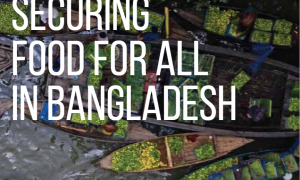Ethiopia’s social safety net effective in limiting COVID-19 impacts on rural food insecurity
The COVID-19 pandemic is undermining food and nutrition security on a global scale. IFPRI estimates show that globally, 80–140 million people were at risk of falling into extreme poverty in 2020, more than half in Africa south of the Sahara.

